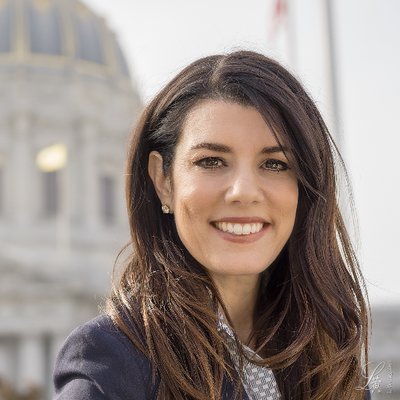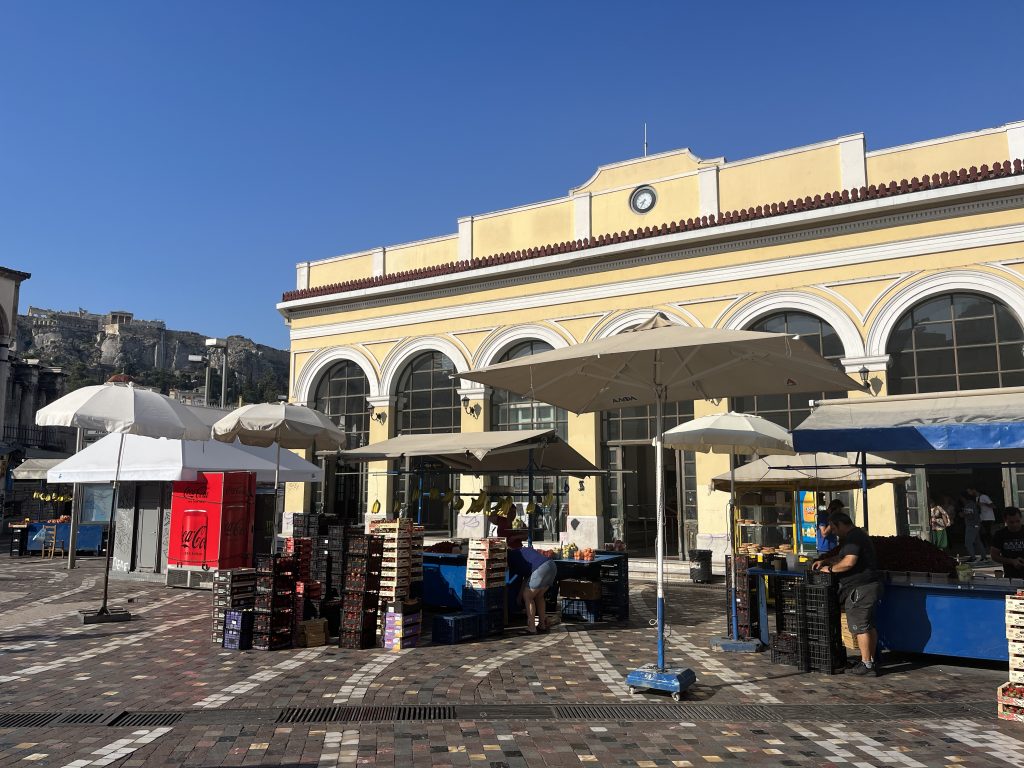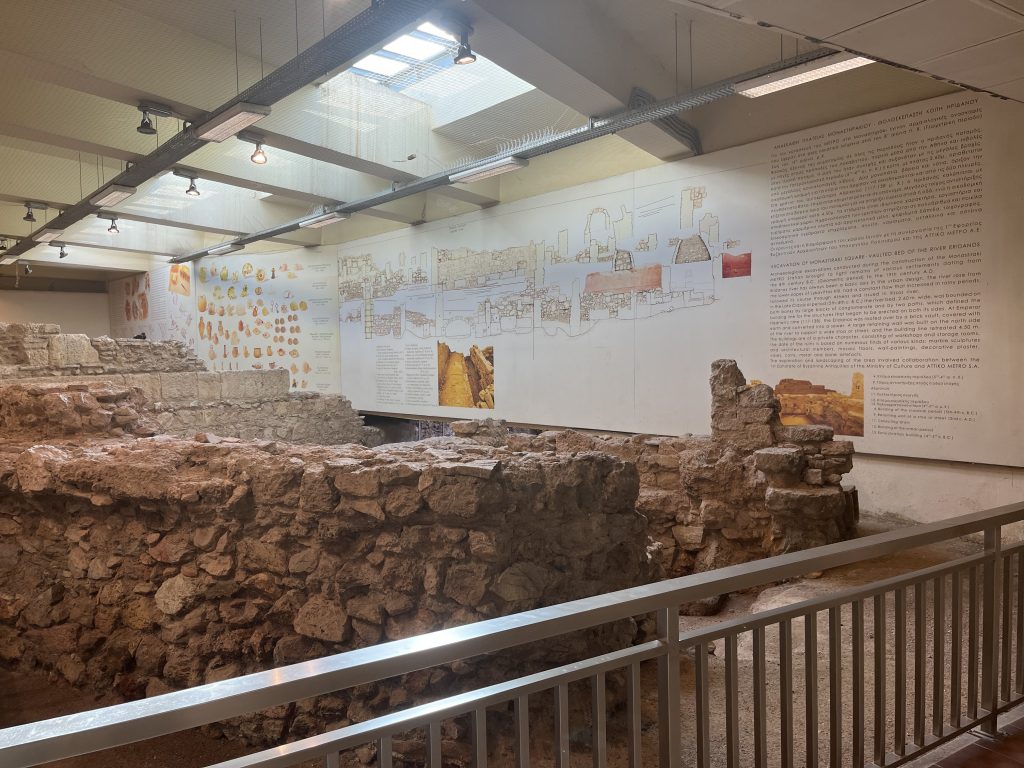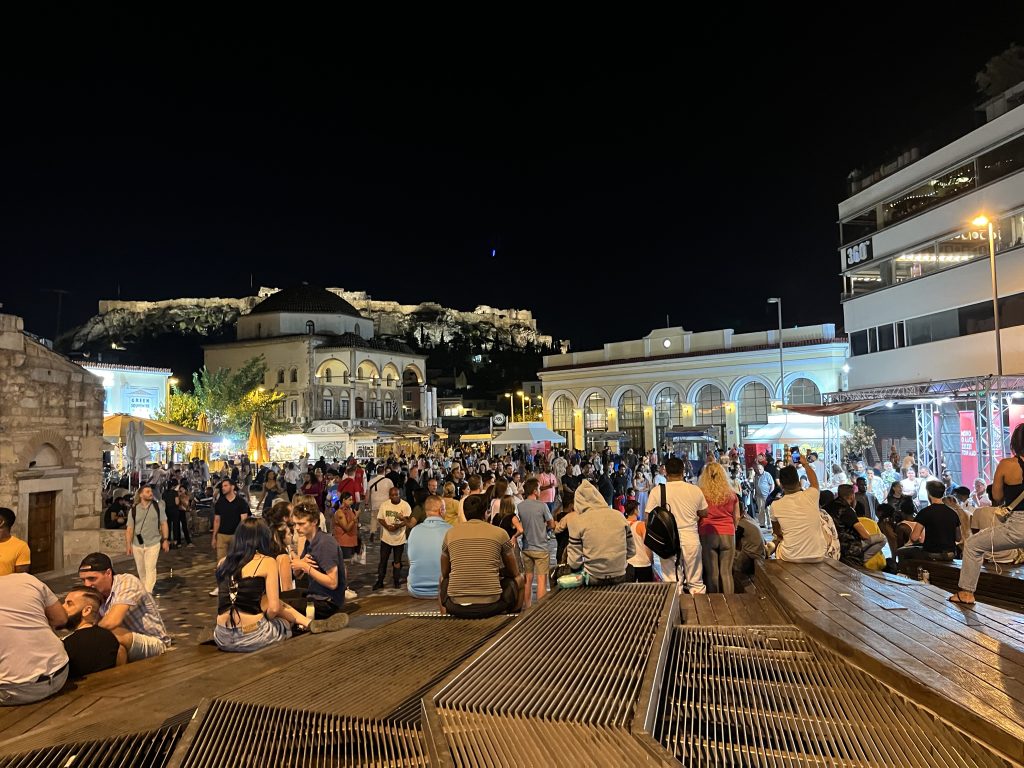
I’ll be a guest on KQED Forum today at 10am PT discussing congestion pricing — where cities charge drivers to enter congested areas during peak times, as a way to limit traffic and pay for transit. The show is part of Forum’s “In Transit” series where I’m a regular guest.
London, Stockholm and Singapore all use congestion pricing, but it has yet to be adopted in any U.S. city. Los Angeles is now studying the concept, and LA Metro will soon release a report examining which parts of the city could benefit most from congestion pricing.
Joining me on the show will be Mark Vallianatos, executive officer in the Office of Strategic Innovation, LA Metro.
You can stream live or tune in on KQED in Northern California.

Tonight on KALW’s State of the Bay, we’ll hear an update on what to expect as San Francisco students head back to school from Jill Tucker, education reporter with the San Francisco Chronicle.
Then we’ll learn about the benefits of “awe walks” and the many ways to enjoy hiking in the Bay Area, including tips on how to get to the trails on public transit. Guests include UCSF’s Virginia Sturm, PhD, Tracy Salcedo and Evan Tschuy.
Finally, you’ll hear my interview with local author Erin Carlson about her new book, No Crying in Baseball, which details the making of the classic film, A League of Their Own.
Tune in at 91.7 FM in the San Francisco Bay Area or stream live at 6pm PT. Call in at 866-798-TALK with comments or questions for our guests!

This morning at 10am PT, I’ll be joining KQED’s Forum to discuss how California can make our roads and pathways safer for bicyclists. Biking is a more climate-friendly and healthy way to get around, but sharing space on California’s roadways with vehicles is notoriously dangerous and sometimes deadly. What can be done to make biking safer and encourage more people to ride?
Joining me on the panel will be:
- Jared Sanchez, policy director, California Bicycle Coalition
- Darwin Moosavi, deputy secretary for environmental policy and housing coordination, California State Transportation Agency
- Anthony Molina, chair, Fresno County Bike Coalition
Stream live at 10am PT or tune in at 88.5 FM KQED in the San Francisco Bay Area!
Then at 6pm PT, I’ll be hosting State of the Bay on KALW, where we’ll start by interviewing State Senator Scott Wiener about his bill SB 58 to decriminalize psychedelics in California.
Then I’ll interview former Oakland Athletics vice president Andy Dolich, author of Goodbye, Oakland, about the future of the team and sports in Oakland, given the team owners’ apparent decision to relocate to Las Vegas. Can Oakland find a way to keep their last major sports franchise from leaving?
Finally, we’ll hear all about the San Francisco Mime Troupe’s new satire, Breakdown.
Tune in at 91.7 FM in the San Francisco Bay Area or stream live at 6pm PT. What comments or questions do you have for our guests? Call 866-798-TALK to join the conversation!

Tonight on KALW’s State of the Bay, we’ll discuss a new legislative proposal (SB 532, Wiener) to increase San Francisco’s bridge tolls to help pay for Bay Area public transit. Joining us will be Laura Tolkoff of SPUR.
Then we’ll have a one-on-one with San Francisco District 2 Supervisor Catherine Stefani to talk about the issues most pressing to San Francisco residents, including homelessness, public safety, and more. What should we be asking her about?
And finally, for our series “Have You Met…”, you’ll meet Peter Kaisin, who leads free sea shanty sing-a-longs at Aquatic Park.
Tune in at 91.7 FM in the San Francisco Bay Area or stream live at 6pm PT. What comments or questions do you have for our guests? Call 866-798-TALK to join the conversation!

I’m guest hosting today’s Your Call Media Roundtable, when we’ll discuss the worsening situation in Haiti. The UN estimates that 4.9 million Haitians, nearly half the population, are now facing “acute food insecurity.”
165,000 Haitians have fled their homes, driven out by gang violence, with nowhere to go in Port-au-Prince, the Haitian capital city of nearly three million people, according to the Associate Press.
Joining us to discuss will be:
- Amy Wilentz, contributing editor at The Nation
- Widlore Mérancourt, Haitian reporter and editor-in-chief of AyiboPost
Then later in the program we’ll discuss the major new Supreme Court decisions on affirmative action and student loans, the latter just handed down this morning. The Court also rejected the so-called independent state legislature theory that would have given power over elections to state lawmakers.
In a 6-3 decision, the court’s conservative majority rejected the race-conscious admissions policies used by Harvard College and the University of North Carolina, finding that the programs violate the equal protection clause of the 14th Amendment. Justices Sonia Sotomayor, Elena Kagan, and Ketanji Brown Jackson dissented.
Jackson wrote in her dissenting opinion in Students for Fair Admissions v. University of North Carolina “with let-them-eat-cake obliviousness, today, the majority pulls the ripcord and announces ‘colorblindness for all’ by legal fiat. But deeming race irrelevant in law does not make it so in life.”
Joining us will be:
- Chris Geidner, journalist and MSNBC columnist whose Law Dork newsletter covers the Supreme Court, law and politics
- Elie Mystal , Justice Correspondent for The Nation, host of the new podcast, Contempt of Court with Elie Mystal, and the author of the Allow Me to Retort: A Black Guy’s Guide to the Constitution
Tune in at 91.7 FM in the San Francisco Bay Area or stream live at 10am PT. What comments or questions do you have for our guests? Call 866-798-TALK to join the conversation!

Like the proverbial Betamax vs. VHS technology competition of the 1980s, EV fast charging has been caught up in a wasteful turf war involving three different formats, basically boiling down to Japan versus Europe/North America vs. Tesla. But now we suddenly have a winner, as first Ford and then General Motors and startup Rivian have all pledged in the past few weeks to adopt the Tesla charging standard in their vehicles starting next year, with adapters available for consumers this year.
It couldn’t happen soon enough. The differing charging formats means EV drivers are limited where they can get fast charging or have to carry adapters, while non-Tesla charging stations had to have multiple plugs available for different formats.
The other problem is that non-Tesla chargers are basically awful. They’re unreliable, clunky and often with low power. While legacy automakers dithered and refused to invest in a network of chargers, Tesla instead built a user-friendly, ubiquitous network. The company is now poised to reap the economic benefits, from its position as a dominant market leader in vehicle sales.
One of the big questions now is what happens to all the soon-to-be-obsolete chargers out there? Companies like EVgo and Electrify America have built thousands of fast-charger stations with formats that are now zombie technology. Worse, the public has invested significantly in these stations, with EVgo a creation of a $100 million legal settlement from the California energy crisis circa 2000, while Electrify America was funded with dollars from the Volkswagen “dieselgate” emissions cheating settlement, to the tune of almost $1 billion in California alone.
All will not be lost, as the stations can be retrofitted in some cases. The wiring is sometimes the hard part, so charger replacement by itself may not be too expensive. But in some cases, retrofits may be uneconomical. And ultimately, these companies are likely to go out of business, unless they can get access to Tesla’s intellectual property to build their own versions of a Tesla SuperCharger.
If not, Tesla will have a monopoly on charging stations, which will create its own long-term problems. But for now, the charging format wars have ended, in favor of a far superior product.
That’s something that both EV advocates and drivers can finally celebrate.

Digging holes in urban areas for rail transit tunnels and stations can unearth all sorts of challenges. But imagine doing so in a place like Athens, Greece, where thousands of years of the built environment can turn up at any scoop of the shovel.
Perhaps no station better exemplifies the challenges and beauty of digging through history then Athen’s Monastiraki Metro Station, located in the heart of the city’s bustling tourist center just north of the Acropolis. I had the chance to visit it this month and was struck by the archaeological site located literally within the station, with some artifacts dating back to the Bronze Age.

As Atlas Obscura described, the station sits on the ancient riverbed of Eridanos (called the “River of Hades” at the time). It was converted to a covered sewer under Roman emperor (and big Grecophile) Hadrian’s time. The ruins today are primarily from private buildings like workshops and storage rooms, dating as far back as the 8th century B.C.
The station itself was one of Athens’ main train stations for many years, and when Greece joined the European Union, the EU provided funding to transition it into the station you see today.

Of course, Athens is not alone in these Earthly challenges. Rome’s metro system has famously dealt with digging through archaeological sites for years. Los Angeles Metro Rail also found thousands of years of Native American history (including a village site by Union Station) plus Ice Age burials, particularly near the La Brea tar pits on the new Wilshire extension.
But for me the experience of feeling like I was visiting a museum at the same time I was at a Metro station was a new one. Kudos to Athens Metro for incorporating this history into the rider experience!
What’s the latest on the deteriorating situation in Sudan? A fight between military factions has now turned into full-fledged urban warfare. We’ll be discussing on today’s Your Call’s Media Roundtable, when I’ll be guest hosting. Joining us will be Mat Nashed, journalist and analyst specializing in the Middle East and North Africa, with a focus on Sudan.
Then we discuss the new two-hour FRONTLINE special Clarence and Ginni Thomas: Politics, Power and the Supreme Court (preview above). The film examines Clarence and Ginni Thomases’ lives and their rise to power and influence.
It comes on the heels of a recent ProPublica investigation found that for over 20 years, Justice Thomas has accepted luxury trips virtually every year from billionaire Republican donor Harlan Crow without disclosing them, breaking long-standing norms for judges’ conduct. Joining us to discuss the film will be its director, Michael Kirk.
Tune in at 91.7 FM in the San Francisco Bay Area or stream live at 10am PT. What comments or questions do you have for our guests? Call 866-798-TALK to join the conversation!

Can California become a global center for lithium production for EV batteries? How sustainable is the global battery supply chain? I’ll be a guest on KQED Forum today at 10am PT to discuss, as part of the show’s “In Transit” series.
Today, Australia, Chile and China are the top three sources of worldwide lithium production. But California’s Imperial Valley contains a vast underground reserve near the Salton Sea, with enough lithium potentially to meet all of U.S. future demand and more than one-third of global demand.
Along with me to discuss this potential will be Eduardo Garcia, Assemblymember, representing California’s 36th State Assembly District in eastern Riverside County and Imperial County.
Tune in on KQED radio or stream live at 10am PT!


